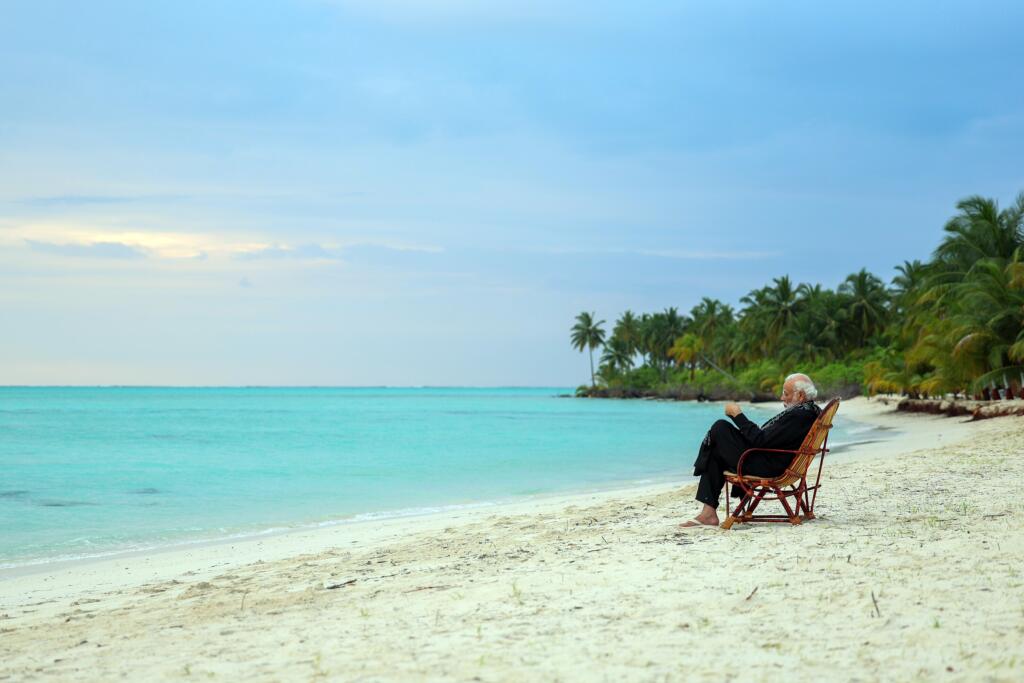Maldives President Mohamed Muizzu expressed satisfaction during his inaugural visit to India, highlighting the strengthened ties between the two nations. Muizzu’s presence at Prime Minister Narendra Modi’s swearing-in ceremony signified the growing diplomatic rapport between Maldives and India.
Warm Reception and Bilateral Discussions
During his visit, President Muizzu was cordially welcomed by Prime Minister Modi, President Draupadi Murmu, and External Affairs Minister S Jaishankar. The interactions underscored the mutual commitment to enhancing bilateral relations.
Positive Outlook for Bilateral Relations
President Muizzu emphasized the promising prospects for the Maldives stemming from the robust relationship with India. He expressed gratitude for the invitation from Prime Minister Modi and appreciated the opportunity to engage in meaningful discussions.
Strengthening Regional Cooperation
The Maldives President’s visit also highlighted the importance of regional cooperation and solidarity. Meetings between President Muizzu and Indian counterparts focused on bolstering cooperation in various sectors for the mutual benefit of both nations.
Path to Prosperity and Development
President Draupadi Murmu conveyed her confidence in the leadership of President Muizzu, expressing optimism for the Maldives’ continued progress and prosperity. The discussions underscored India’s commitment to supporting Maldives’ development endeavors.
Diplomatic Milestones and Future Endeavors
President Muizzu’s visit to India marked a significant milestone in Maldives’ diplomatic engagements. It exemplified the country’s commitment to fostering constructive relations with neighboring nations and the international community.
Maldives and Lakshadweep
Earlier this year, the Maldives faced a detrimental impact due to statements issued by Deputy Ministers in the Ministry of Youth Affairs—Maryam Shiuna, Malsha Shareef, and Mahzoom Majid. These statements, concerning India and Prime Minister Narendra Modi, were made subsequent to his visit to Lakshadweep. The repercussions of these remarks reverberated throughout the Maldives, affecting its diplomatic relations and potentially tarnishing its image on the international stage. The fallout underscored the importance of diplomatic tact and sensitivity in handling bilateral relations, especially with key regional partners like India.
Government Response and Damage Control
In response, the Maldivian government, recognizing the potential negative impact on tourism revenues, swiftly distanced itself from the remarks. The Foreign Ministry promptly engaged in damage control, emphasizing its commitment to freedom of expression while stressing responsible discourse.
The “India Out” Campaign
Under President Muizzu’s leadership, the “India Out” campaign gained traction, aiming to challenge India’s influence in the Maldives. This campaign sought to pivot towards China, presenting it as a more favorable partner and criticizing India’s perceived dominance in the region.
Pragmatic Shift in Stance
Muizzu’s sudden shift in position, transitioning from anti-India rhetoric to highlighting India’s significance as a close ally, underscores the pragmatic realities confronting the Maldives. The nation’s substantial debt to India, amounting to approximately $400.9 million, highlights its reliance on Indian financial aid for economic stability and development.
Economic Dependency and Bilateral Relations
The Maldives’ economic reliance on India reveals the intricate interplay of factors shaping bilateral relations. While political discourse may lean towards distancing from India, the practical realities of economic necessity demand a different approach. With significant debts owed to India and ongoing financial assistance crucial for economic stability and development, the Maldives finds itself intricately tied to its neighbor. Thus, despite occasional diplomatic tensions, the Maldives is compelled to prioritize a pragmatic and cooperative stance towards India, recognizing the indispensable role it plays in sustaining the Maldivian economy and fostering long-term prosperity.
Conclusion
President Mohamed Muizzu’s visit to India symbolized the deep-rooted friendship and historical ties between the Maldives and India. It underscored the commitment of both nations to nurturing their relationship for mutual benefit. The strengthened ties not only present promising prospects for bilateral cooperation but also contribute to regional stability. Maldives and India can unlock growth through trade, security, and tourism collaboration for shared development. The partnership benefits countries directly involved and fosters regional peace, prosperity, and broader positive impacts.
ALSO READ: Modi Requests to Remove ‘Modi Ka Parivaar’ from Social Media Handles
